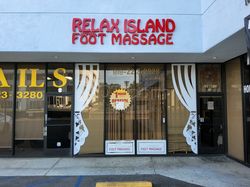
WEIGHT: 63 kg
Breast: B
One HOUR:90$
NIGHT: +70$
Services: Smoking (Fetish), Fetish, Fisting anal, Massage erotic, Bondage

Runcorn is an industrial town and cargo port in the Borough of Halton , Cheshire , England. Its population in was 62, In the late 18th and early 19th centuries, it was a spa and health resort but this ended with the growth of polluting industries, especially soap and chemical works. Its location between Liverpool and Manchester and its links to the rail, motorway and canal networks have made it a centre for manufacturing, logistics, and wholesale and retail.
The earliest written reference to the town is in the Anglo-Saxon Chronicle , where it is spelled "Rumcofan", literally meaning "a wide cove or bay". Other historical spellings of Runcorn include "Rumcoven", "Ronchestorn", "Runckhorne", and "Runcorne". Little is known about the early history of the settlement but isolated findings of objects from the Stone , Bronze , and Iron Ages have been made and there is evidence of a Roman presence in the area.

Following the Norman conquest , Runcorn was not mentioned in the Domesday survey, although surrounding settlements were. It is likely that Nigel erected a motte and bailey castle on Halton Hill in the s. In , the priory was moved to Norton, about 3. In , the priory was raised to the higher status of abbey. It fell twice to Parliamentarian Roundheads. The first siege was led by Sir William Brereton in ; the second was during the following year. Following this, a "Council of War" was held in Warrington in at which it was decided that the castle should be slighted.
In , Runcorn was described as being "nothing but a fair parish church, a parsonage and a few scattered tenements". The only through traffic used the ferry which crossed from Runcorn to the north bank of the River Mersey. During the 18th century, water transport had been improved in the area by the Mersey and Irwell Navigation , the Bridgewater Canal and the Trent and Mersey Canal.

This gave Runcorn waterway connections with most of the interior of England through the canal system and with the sea along the River Mersey, thus forming the basis for the development of the Port of Runcorn. Industries began to develop within and around the town, in particular shipbuilding, engineering, chemical manufacturing, tanning, and sandstone quarrying. Towards the end of the 18th century and in the early years of the 19th century, the town was a health resort.




































